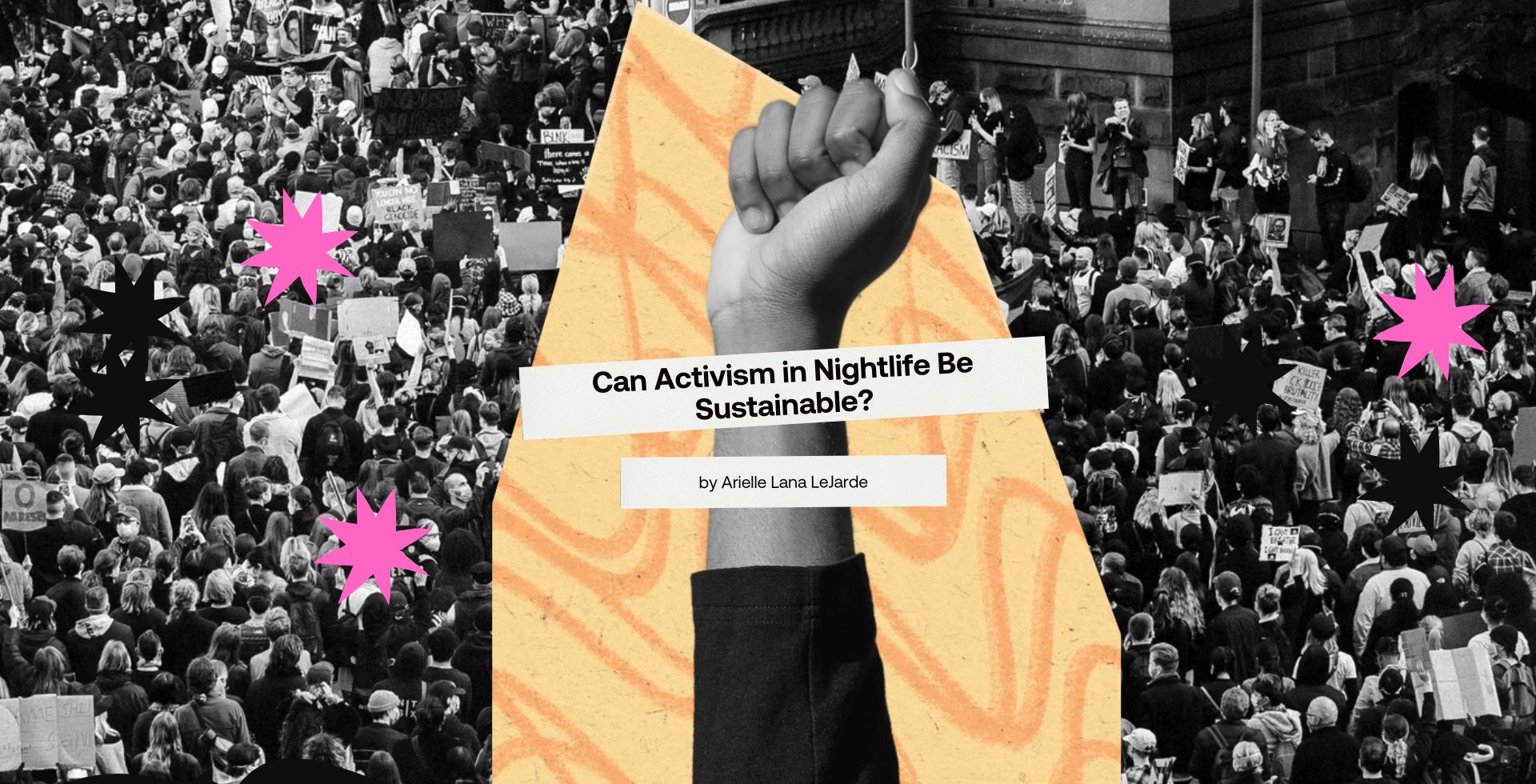By Arielle Lana LeJarde

Can Activism in Nightlife Be Sustainable?
Having a moral code isn’t the easiest thing to do in the music industry, but it must be done.
“HEAD TO HEAD” is a HEADS KNOW column in which culture journalist Arielle Lana LeJarde dissects popular discourse in electronic music and nightlife.
Back in January, it was announced that ticketing platform DICE sold Boiler room to European events company Superstruct Entertainment. Concerns began to rise when people began to look into KKR, the investment firm that owns Superstruct, and found that the establishment has consistently backed businesses in Israel, funding millions to billions of dollars in data centers, as well as pouring money into the US military industrial sector.
Artists have since begun pulling out of Boiler Room events, including the likes of Ikonika, Mia Koden, and 8ULENTINA — the latter of whom has started a strike fund to compensate for the lost opportunity. San Francisco label NO BIAS also voiced it will be creating a pool to distribute resources to artists who’ve lost opportunities due to Boiler Room’s boycott.
On March 28th, Surf, the founder of party and online radio station Half Moon, posted: “So people in the dance music scene are turning down Boiler Room gigs to then do gofundme campaigns to raise the money they would have gotten for the gig because they ‘need the money?’ Yooooooo this world is cooked.” He later clarified that he thinks these artists shouldn’t try and “make the money elsewhere” or “GoFundMe their way through life.”
I can agree with one thing Surf said at least. This world is cooked. The fact that artists have to choose between what they believe in and surviving is despicable. The platforms that have the means to keep the electronic music and nightlife industries alive continuously prove they care more about money than they do about the people (which are people of color, queer folks, and other marginalized, oppressed groups) who make it what it is.
But should people who take a stand against what they believe to be wrongdoing not be able to recoup their losses elsewhere? Last December, I revealed my relationship with
Resident Advisor was severed after I left the company on a sour note. After leaving my role as a full-time freelance news writer, I voiced my disappointment in their promotion of HÖR, to which I received an angry email from an executive. If, as Surf believes, I should “take the loss” and not look for work elsewhere because I had taken a stand against a publication, I wouldn’t be writing anymore, nor would I have this column at all.
On March 25th, Boiler Room issued a statement in response to the boycott, saying KKR’s investments “categorically do not align with our values.” The message explained that “no Boiler Room staff at any level held any ownership or voting rights in the company and had no control over the sale” and they “are also unable to divest because we have no say in our ownership.”
Personally, I like Boiler Room. I know people who work there who I wouldn’t want to lose their jobs because of something they can’t control. However, artists have every right to continue to boycott the platform because they don’t want to fill the pockets of companies like KKR using their name, likeness, and work. If Boiler Room is as pro-Palestine as they say they are — they should understand that.
On my first “Head to Head” column, I wrote about visual DJ sets and the platforms who host them. Boiler Room didn’t go without mention, nor are they excluded from the opinion I held back then: “The platforms themselves might not always be inherently evil, but the power we give them needs to be reevaluated. As it goes with music media, everything can disappear in an instant anyway.”
About Arielle Lana LeJarde
Arielle Lana LeJarde is a New York City-based culture journalist, author, and event producer dedicated to documenting the modern history of underground electronic music and hip-hop. In May 2023, she launched the independent platform and party HEADS KNOW.


